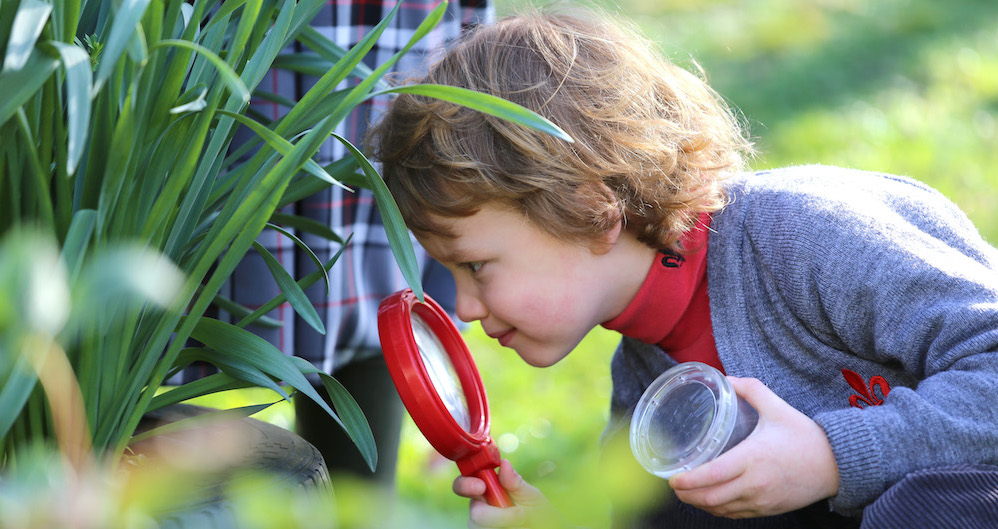Barbara Langford, Westbourne House's Director of Studies, is spearheading a new teaching and learning framework at Westbourne House School in Chichester, West Sussex, called High Performance Learning, which will be introduced from September 2019.
In this article, she shares with parents of young children a variety of ways we can stimulate a child's curiosity and build his or her intelligence.

From September 2019, we are introducing a new teaching and learning framework at Westbourne House School called High Performance Learning. High Performance Learning (HPL) creates a climate of success and is based on the belief, backed up by research, that we can build all children’s intelligence. HPL is an ideal framework: it supports us in our aim of nurturing the values, attitudes and attributes that will enable our children to make confident, ambitious choices on their path to their chosen future.
Parents often ask us how they can help at home. There is no generic answer as every family and child is different but here are some tips that may help.
Whether your child is naturally inquisitive or not, there are many ways that you can stimulate your child’s curiosity and therefore grow their brains. The latest research tells us that intelligence can be developed, and that every child has the potential to be a high performer.
If I had to pick one thing above all else it would be conversation. Children pick up almost all their values and attitudes from their parents. Modelling behaviour through conversation is incredibly powerful. For example, if parents concentrate and talk about a child’s effort grades rather than the achievement then children will learn to value perseverance.
Conversation also allows us to model that making mistakes is part of learning. If parents said “I’m rubbish at this so I’m not going to do it”, it sets the scene for children thinking that this is acceptable to give up as soon as things are difficult at school. A better approach may be “I wish I hadn't rushed into that job of putting the shelf up, if I had taken more time planning it would now be straight. Next time I’m going to get a spirit level out!” In this instance, the parent is modelling resilience and metacognition, which is the awareness and understanding of one's own thought process.
Taking it in turns to talk and listen to family members helps children to develop empathy and an understanding that not everyone shares the same opinions. It is ok to have different opinions as long as you respect others.
Talking about a shared book and reading together can spark imagination and develop intellectual playfulness. The ability to take one situation and then see beyond the obvious is one of the key skills that top performing children are able to do.
Playing as many games as possible with your children helps in so many different ways. Jigsaws help pattern spotting and non-verbal reasoning. Playing football or catch helps gross motor skills and coordination. Chess develops strategic thinking. Silly games are equally important as they let children enjoy themselves and develop the sense of the esoteric and ridiculous.
Finally, the sense that learning something new, whatever it is, is fun and exciting is a gift that we can give our children.
At Westbourne House School, we offer scholarships for children with strong academic and or music potential who enjoy a challenge and are curious about the world around them.
Deadline for scholarships: 18 February (Academic) and 25 February (Music). Learn more online and then get in touch - 01243 782 739.
Westbourne House is an independent co-educational school for boys and girls aged 2 ½ to 13, located on 100 acres of parkland just outside Chichester.



